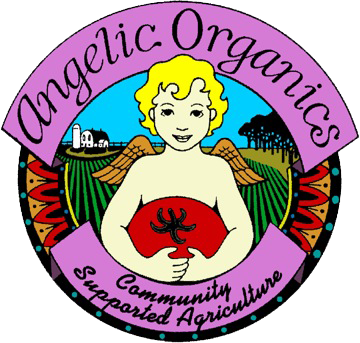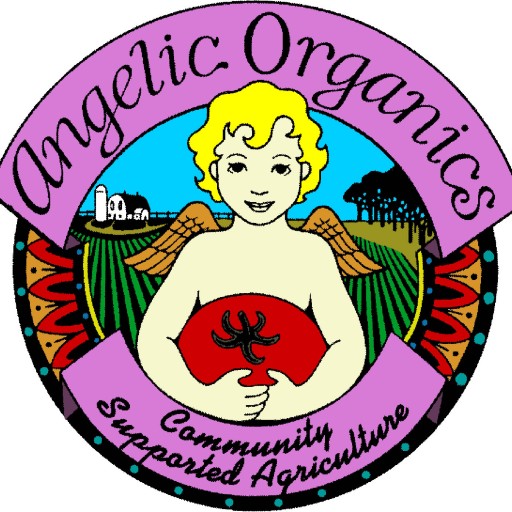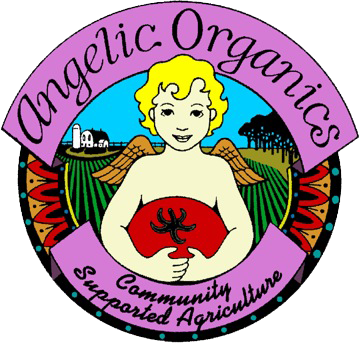Farmer John Sees the Handwriting on the Barn Wall – Harvest Week 10: Tue/Wed/Thurs Delivery, Aug 13, 14 & 15, 2013
Welcome to Harvest Week 10 Tue/Wed/Thurs Delivery, Aug 13th, 14th & 15th, 2013
In Farm News, Farmer John Sees the Handwriting on the Barn Wall
The Weather
Very cool. Occasional showers. It’s been one of the best seasons ever from the standpoint of crew comfort, often overcast with moderate temperatures.
The Crops
Your box is loaded with tomatoes, melons and corn this week, along with smaller quantities of other vegetables and basil. We schedule planting in a way that will ideally pace the harvest of certain crops and their corresponding flow into your box, but this year nature has a different plan in mind, providing you with surges of abundance, especially of certain crops. Look for lots of melons and tomatoes in the next couple of weeks. Sweet corn, cucumbers and zucchini end this week: we’ll put a head of garlic in your box next week to help you through any grief you feel from the ending of these crops.
Shareholders Write
Please tell the farm team that I have NEVER been so pleased as I have been this year. Wed. delivery was unbelievable!!!!!!!!! Thank you so very much. The deliveries are so much cleaner than in previous years and that really helps me put away my delivery and it keeps the soil where it needs to be, on the farm! Every thing is lovely and delicious!
Sincerely,
~Marge
We loved the first sweet corn of the season!
Thanks for all your work.
~Donna
P.S. we had a great time at the dinner last weekend.
Hi Farmer John!
Hope you’re doing well.
I just thought you would enjoy knowing that in my entire lifetime of being a Polish lady, I’ve never made Golubki (stuffed cabbage) with a more perfectly suited cabbage than the cabbage that came in our boxes last week!
The large leaves and squat heads lend themselves perfectly to my old family recipe. My grandmothers and great-grandmothers were standing over my shoulder knowingly nodding in approval.
Thanks! Yum.
~Jean
More from Shareholders
Visit us often at http://www.facebook.com/angelicorganics , where we post exciting farm developments regularly, and shareholders post recipes, tips, and photos.
Upcoming at the Angelic Organics Learning Center
Nothing brings you and your family closer to the farm than a night spent camped out under the stars in the oak savanna at Angelic Organics! Join Angelic Organics Learning Center for the Family Farm Overnight on August 31st at 11:00 a.m. through September 1st at 12:00 p.m. Visit our newborn calf along with the other friendly livestock. Enjoy family time, outdoor activities, a farm tour, and optional work projects. Evening campfire with a veggie-dog roast and farm-fresh breakfast included. Please bring camping gear. $50
To register, visit http://learngrowconnect.org/node/4873 or call 815-389-8455.
The Work (Farmer John Sees the Handwriting on the Barn Wall)
Chris Voss and Ben Wilson met with the organic inspector for our annual organic review. It’s quite an event, with a thorough examination of all the inputs we use, the seed we buy, our fertility program, etc…several hours of walking the fields plus thumbing through paperwork. The inspector was very pleased with what she found and we are now certified organic for another year.
There is another type of inspection that we are preparing for, Good Agricultural Practices or GAP, which is based on the Food Safety Modernization Act. This preparation requires a very thorough examination of our field and packing area sanitation and hygiene practices and worker sanitation practices…very thorough. I have hired Jeff Robare to head this project up, as the preparations for the audit require many months of looking at and adjusting our systems, infrastructure and policies and making sure they are in compliance with GAP standards.
It’s probably a $50,000 project, just to get to where we can qualify for GAP certification. It requires a considerable amount of infrastructure work, making sure that our facilities are bird- and rodent-proof, that our packing and harvest containers are properly housed so as not to be visited by animals, that the lubricants that we use on our packing and harvest machinery are food grade quality, that our light bulbs are shatterproof, that our produce can be tracked from the customer back to the field and date of harvest, harvested by which crew and packed by whom, when, and stored at what temperature…temperature to be logged ongoingly from harvest through delivery. We’ll be mindful of the rule that when a field worker wipes the noble sweat from his or her brow, that he or she is to report to the crew leader that the hand came in contact with the face, and the worker must proceed to sanitary facilities to wash this hand. We’ll have a manual a few hundred pages long to guide us, so we don’t overlook any germs.
We are now building container storage for our hundreds of plastic totes and will soon pour cement aprons to facilitate more antiseptic storage of our many bulk vegetable bins and cribs. We will seal our barn doors against the barn swallows that have been returning to the farm in the spring since our barn was built 55 years ago.
Once we qualify for GAP, the estimate is that it will cost us about $30,000 to $50,000 per year, to stay in compliance. It will require at least a half-time on-farm inspector/facilitator of appropriate practices, plus the equivalent of at least a half-time person who will endeavor to make the facilities as antiseptic as possible.
You might wonder why we’re undertaking this certification. A positive outcome of certifying is that we will achieve more order, more cleanliness, and more attentiveness to our processes and our facilities. We will be more precise, more proactive, and more confident that we are running the farm in a way that is most considerate and healthful for our customers. There is a sentiment circulating amongst farmers, which I share, that eventually all farms that sell produce to anyone will have to qualify. CSA’s are still exempt, but for how long will that be the case? All sorts of institutions now require that a farm have GAP certification in order to sell produce to them, and wholesalers are increasingly closing their doors to growers who are not GAP certified. There is some lenience regarding GAP certification that small farms qualify for, but Angelic Organics does not qualify for small farm status.
A close examination of these regulations can cause one to reflect on the laws in most of the U.S. regarding raw milk, and to which prison a farmer might be assigned if he or she engages in the sale or distribution of raw milk. Sanitation is, of course, a most important consideration regarding food, but the question is, how far should these rules be taken? And of course, the irony is not lost when considering a government that tries mightily to protect its people from harmful bacteria, while allowing all sorts of questionable chemically treated and genetically engineered foodstuffs into our food system.
I see the handwriting on the barn wall, and the wall will not qualify for GAP certification.
Box Contents
Please Note: this summary is written before you receive your box—please be aware that some guesswork is involved. As always, be sure to thoroughly wash all of your vegetables.
Salad Greens – Lettuce
Fruiting Crops – Melon (Muskmelon, Galia or Asian), Summer Squash (Zucchini, Yellow or Patty Pan), Cucumbers, Sweet Corn, Tomatoes, Sweet Peppers, Eggplant
Cooking Greens – Pac Choi
Herbs – Basil
Alliums – Onions






